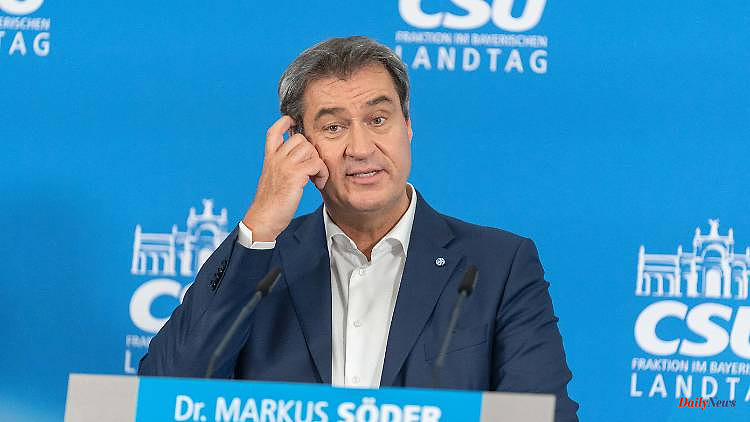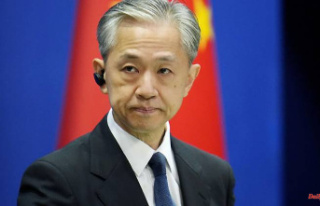Gas price cap, fuel price cap and a broad rescue package: According to the CSU chairman, all of this is missing in the management of the federal government when it comes to the energy crisis. Suddenly, Söder also doubts the sense of the debt brake, which he discredits as "principle riding".
Prime Minister Markus Söder has questioned compliance with the debt brake at federal level. "We are very much in favor of sensible finances. But if a mega-crisis threatens like now, then in the end there has to be a balance, a balance between regulatory law and a balance between help," said Söder after a closed meeting of his CSU state parliamentary group in Kloster Banz near Bad Staffelstein. "From my point of view, in the end, the help for the country, the people and the economy comes before riding on principles," said the CSU party leader.
The debt brake enshrined in the Basic Law stipulates that the federal and state governments must always balance their budgets without loans. Above all, Federal Finance Minister Christian Lindner and his FDP insist on strict compliance with the rule, which was suspended for three years in the federal government due to Corona, from 2023.
Söder said: "I'm for the debt brake, I'm also for compliance with the debt brake." He added: "But if it comes to a fantastically big, bad crisis? A dimension that goes beyond what we think? Then riding principles can't be the solution for a country."
He also said: "We need a gas price cap, we need a fuel cap. It works in other countries, why not in Germany?" A broad-based rescue package is also needed. It must also exist for public utilities, hospitals and other facilities. "Nothing should break," said Söder. He described the proposals presented so far in Berlin as insufficient. They are currently not supported by the federal states. He assumes that there will be a need for a mediation committee from the federal and state governments.
In addition, Bavaria threatened a new lawsuit against the state financial equalization. The fact that his state had to pay 60 percent of the financial equalization and thus nine billion euros was unacceptable, said Söder on the sidelines of a closed conference. "We cannot accept that," said Söder. Therefore, a lawsuit is being examined again - "in the next few months" there should be a decision.
As early as 2013, Bavaria - at that time together with Hesse - had filed a lawsuit against the state financial equalization. In 2017, the two countries withdrew the lawsuit after negotiations. Söder said that without the agreement at that time, Bavaria would have to pay ten billion euros and even more.
But the current amount is no longer acceptable. "In my view, this is an attack on federalism," said Söder. It is also not an election campaign maneuver a year before the state elections in Bavaria. The other donor countries would also gradually begin to think about the system.












